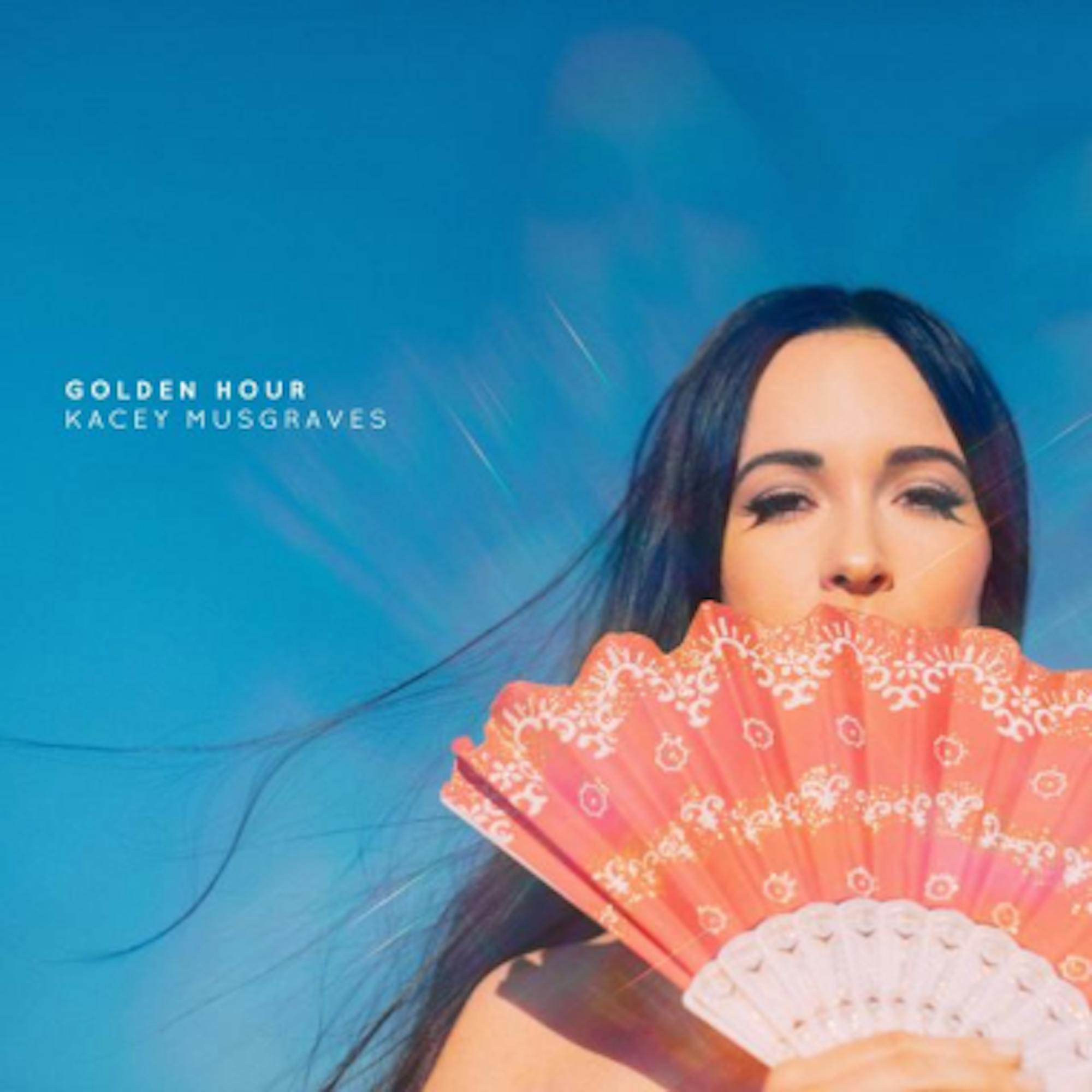Known for her sharp wit and even sharper writing instincts, country singer-songwriter Kacey Musgraves has never been afraid to speak her mind. Her 2013 debut, “Same Trailer Different Park,” announced Musgraves as one to watch and tackled many unexplored topics in country music, such as sex, drugs and loneliness. Singles “Merry Go ’Round” and “Follow Your Arrow” showed Musgraves at her finest, the former taking aim at the overly romanticized view of Americana and the latter disseminating a message of LGBTQ inclusivity. “Pageant Material” (2015), her sophomore follow-up, saw Musgraves further hone her craft and cement her position as a country tour de force.
Given the critical success of her first two records, the expectations for “Golden Hour,” out March 30, were immensely high. However, Musgrave succeeds beyond wildest expectations as she crafts a dreamy, clever fourth LP. Her style of songwriting remains unparalleled, relying on evocative imagery and extended metaphors to craft some of the best country music, or even just music in general, one can expect to hear this year.
Musgraves’ fourth studio album mainly revolves around her exploring the newfound period the now-29-year-old currently finds herself in as a result of both getting older and marrying to fellow musician Ruston Kelly. Musgraves embraces the happiness she feels in light of her all-good fortune but remains unafraid to engage with the uncertainty and pain that might hold her back.
Nowhere is this more evident than on the record’s opening track, “Slow Burn.” Like many songs on “Golden Hour,” Musgraves takes a conventional trope and turns it into a sonic masterpiece. When Musgraves coos, “Texas is hot, I can be cold / Grandma cried when I pierced my nose,” one gets the sense that Musgraves has become more aware of the impact that her carefree, irreverent attitude has on others. This new wisdom and perspective shows up again in the chorus as Musgraves embraces her desire to slow down and enjoy life, singing, "'Cause I'm alright with a slow burn / Taking my time, let the world turn / I'm gonna do it my way; it'll be alright.”
This juxtaposition of Musgraves’ newfound happiness and lingering sadness plays out across “Golden Hours.” The first two songs released from the album, “Space Cowboy” and “Butterflies,” brilliantly highlight this relationship. The latter is a romantic, spritely ode to blissful love as Musgraves proclaims, “And now, you're lifting me up 'stead of holding me down / Stealing my heart 'stead of stealing my crown.” The former is a soaring ballad, using a classic country music motif to say goodbye to a relationship that has run its course. Musgraves shows her songwriting chops once more on the chorus, eliciting a resigned goodbye as she sings, “You can have your space, cowboy / I ain't gonna fence you in.”
While Musgraves demonstrates that she can truly deliver classic country sounds, much of “Golden Hour” shows she can experiment with new sounds to brilliant effect. “Oh, What A World” uses a Daft Punk-esque vocoder to create a hallucinogenic vibe, thanks in part to the contrast it creates with the track’s lush instrumentation. Album highlight “High Horse” takes this sonic exploration of traditional pop influences even more seriously, incorporating disco elements to craft a witty takedown of a selfish “John Wayne.” The bridge features two of the sharpest lines on the record as Musgraves surmises, “Darling, you take the high horse and I'll take the high road / If you’re too good for us, you’ll be good riding solo.”
Underneath all the humor and complicated nostalgia, Musgraves still finds herself basking in newfound content. The album’s end reflects this unbridled joy with a pair of ethereal ballads. The title track sees Musgraves playing with this idea of a “Golden Hour,” which usually refers to the period after sunrise or immediately preceding sunset, to tell the listener, “I used to get sad / And lonely when the sun went down / But it's different now / 'Cause I love the light that I've found / In you.”
Album closer “Rainbow” continues with this weather-themed imagery and serves as an encapsulation of Musgraves’ fourth studio album. In spite of the tribulations she has faced, Musgraves is able to embrace her happiness and take solace in her partner, singing, “Well, darlin', I'm just tryin' to tell ya / That there's always been a rainbow hangin' over your head.”
“Golden Hour” is streaming now on NPR.
Kacey Musgraves shines during her 'Golden Hour'

The album cover for Kasey Musgraves' "Golden Hour" is pictured.
Summary
Musgraves' 4th studio album is a masterpiece from start to finish, marking a milestone in the singer-songwriter's career.
4.5 Stars





